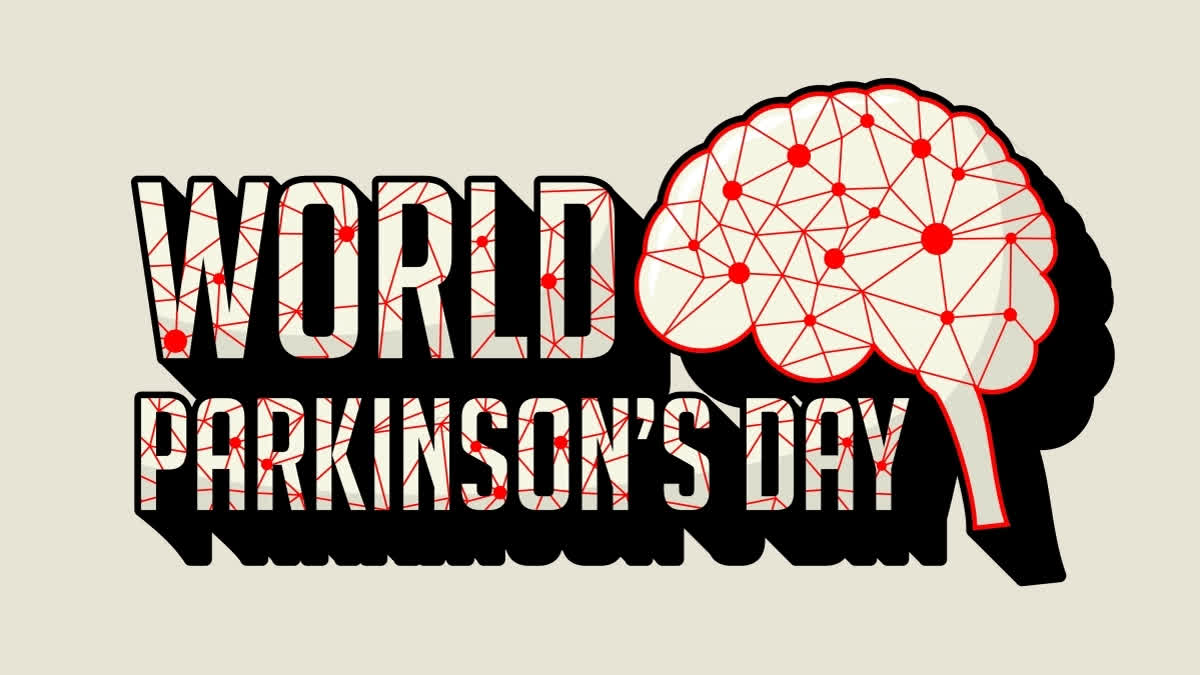Hyderabad:World Parkinson's Day, observed on April 11 every year across the globe, urges the people suffering from Parkinson's, scientists and supporters, fundraisers and families, carers and clinicians, to come together and talk about Parkinson's.
The day aims to increase public awareness about Parkinson's, a neurodegenerative disorder. It offers support and resources for those affected by Parkinson's, educating people about the economic, social, and cultural impact of the disease.
What is Parkinson's Disease?
Parkinson's disease (PD), or simply Parkinson's, is a chronic degenerative disorder of the central nervous system that affects both the motor system and non-motor systems. The symptoms usually emerge slowly and as the disease progresses, non-motor symptoms become more common. Early symptoms are tremor, rigidity, slowness of movement, and difficulty with walking. Problems may also arise with cognition, behaviour, sleep, and sensory systems.
Key Facts
- Globally, disability and death due to PD are rapidly increasing.
- Clinical diagnosis of PD by trained non-specialized healthcare workers and simplified treatment guidelines offer better management in primary care settings.
- Levodopa/carbidopa, the most effective medicine for improving symptoms, functioning and quality of life is not accessible, available or affordable everywhere, particularly in low- and middle-income countries.
- Rehabilitation can help improve functioning and quality of life for people with PD.
- There is no cure, but therapies and medicines can reduce symptoms. Common symptoms include tremors, painful muscle contractions and difficulty speaking.
- Parkinson's disease results in high rates of disability and the need for care. Many people with PD also develop dementia.
- The disease usually occurs in older people, but younger people can also be affected. Men are affected more often than women.
- The cause of PD is unknown but people with a family history of the disease have a higher risk. Exposure to air pollution, pesticides and solvents may increase risk.
- More than 2,19,000 Australians (57,000 Victorians) live with Parkinson’s, the world’s fastest-growing neurological disease.
- Nearly one million people in the U.S. are living with Parkinson's disease (PD). This number is expected to rise to 1.2 million by 2030.
- More than 10 million people worldwide are living with Parkinson's.
- Nearly 90,000 people in the U.S. are diagnosed with PD each year.
- Most common neurodegenerative disease after Alzheimer’s.
- More than 12 million people could be affected by Parkinson’s in 2040.
- According to epidemiological studies, India accounts for approximately 10 per cent of the global cases, which translates to nearly 0.58 million patients living with the disease.
Symptoms of Parkinson's Disease
Symptoms of Parkinson's disease get worse over time. They can greatly reduce well-being and quality of life. Parkinson's disease (PD) is a brain condition that causes problems with movement, mental health, sleep, pain and other health issues.
PD causes motors symptoms including slow movement, tremor, involuntary movement, rigidity, trouble walking and imbalance.
Non-motor symptoms include cognitive impairment, mental health disorders, dementia, sleep disorders, pain, and sensory disturbances.
